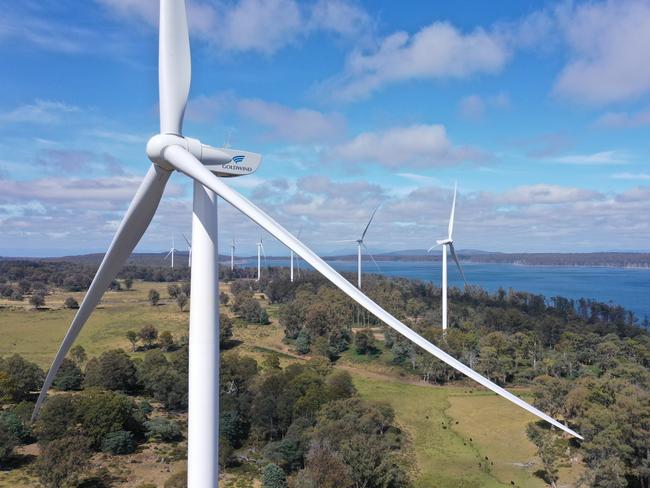SA blackout wasn’t because of renewables, Australia’s ex-chief scientist Alan Finkel says in roadmap to net-zero
Getting to net-zero by 2050 is doable - and South Australia’s 2016 blackout wasn’t caused by renewables, the nation’s former chief scientist says.
SA News
Don't miss out on the headlines from SA News. Followed categories will be added to My News.
South Australia’s 2016 blackout wasn’t caused by renewables, the nation’s former chief scientist says in a new roadmap outlining how Australia can get to “net zero” emissions by 2050.
Dr Alan Finkel says SA’s true problem was “not the renewables, it was the connection rules and the operational management of the electricity system” in landmark essay released today outlining a path to slash emissions.
Solar and wind energy must become Australia’s main energy sources to get to net-zero, Dr Finkel says. He also strongly backs the development of a hydrogen industry, which will create jobs and lucrative export opportunities.

It comes as SA has ranked second in the nation in investment and innovation in renewable energy according to a report by the World Wildlife Foundation.
Ranking second behind Tasmania, the WWF notes SA leads the way in energy storage as well as the creation of renewable energy industrial precincts.
Dr Finkel says the technology to integrate solar and wind energy into the grid has come a long way since the 2016 SA blackout and “system operators have gained experience”.
“It is now clear that it will be possible to achieve the ultimate goal of a zero-emissions electricity system,” Dr Finkel says in a Quarterly Essay released today.
Describing Australia’s future energy-mix, Dr Finkel says: “Solar rooftops, large solar arrays and wind farms will generate the energy, supported by long-distance transmission lines, batteries, pumped hydro, hydrogen storage and smart software.”
Australia would need a “nearly seven-fold” increase in its annual solar and wind energy production to “convert all of Australia’s electricity supply to solar and wind,” he says.
Solar and wind make up 14.3 per cent of Australia’s electricity production at present.
But new solar energy is already cheaper than new black coal-fired electricity, and will “get cheaper every year,” he says.

Dr Finkel warns “there is no time to waste” to tackle climate change and Australia must move “as fast and hard as is practical” to stop global warming getting worse.
Coal will eventually not be part of the nation’s energy mix, and Dr Finkel dismisses nuclear energy as a real option until new technology is developed.
Hydrogen, a gas that has only water vapour as an emission, will be the “backbone” of Australia’s future fuels, he says.
But he warns it would take building solar farms to cover a space equal to four fifths of the nation’s biggest cattle farm, Anna Creek Station in SA, to produce the amount of green hydrogen to match Australia’s current liquefied natural gas exports.
SA is well-positioned to seize on the looming hydrogen boom, and launched a strategy to develop the industry in 2019.
“The price of renewable hydrogen is within a factor of three or four of where it needs to be to compete with fossil fuels,” Dr Finkel says.
He notes natural gas can “ease the way through to the closure of coal-fired power stations” and “can be phased out once hydrogen has been scaled up and commercialised across the spectrum of our energy needs.”
More Coverage

Originally published as SA blackout wasn’t because of renewables, Australia’s ex-chief scientist Alan Finkel says in roadmap to net-zero




